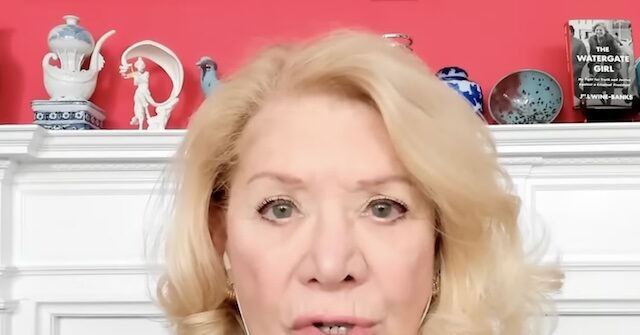Introduction
In a politically charged environment where accountability and justice often collide, the recent remarks by Jill Wine-Banks, a prominent Watergate prosecutor, have added fuel to the fire. Following President Biden’s decision to pardon his son, Hunter Biden, Wine-Banks suggested that the President might consider a self-pardon in light of the ongoing scrutiny and challenges he faces. This bold statement not only raises questions about the use of presidential pardons but also delves deep into the implications of self-pardons, accountability, and the broader political landscape in the United States.
Understanding the Context of Pardons
Pardons have long been a tool for presidents to exercise clemency, often used to address perceived injustices or to heal divisions within the country. The power to grant pardons is enshrined in the U.S. Constitution, specifically in Article II, Section 2, which states, “The President shall have Power to grant Reprieves and Pardons for Offenses against the United States, except in Cases of Impeachment.” This authority has been wielded by presidents throughout history, sometimes controversially.
The Hunter Biden Pardon
Hunter Biden’s legal troubles have been extensively covered in the media, with various allegations ranging from tax fraud to issues related to his business dealings. In a surprising move, President Biden recently pardoned his son, a decision met with mixed reactions from the public and political commentators alike. Supporters argue that the pardon reflects a father’s compassion and a desire to protect his son from what they consider politically motivated prosecution. Critics, however, view it as an abuse of power that undermines the rule of law.
Jill Wine-Banks’ Perspective
Jill Wine-Banks articulated her thoughts on the matter during a recent interview, where she expressed her belief that President Biden should consider the possibility of self-pardon. Wine-Banks, known for her role in the Watergate scandal investigations, highlighted the complexities of presidential powers in light of current political dynamics. She noted that if the President faces legal challenges or potential investigations, a self-pardon could be seen as a means of ensuring executive protection against politically motivated attacks.
The Legal and Ethical Implications of Self-Pardons
The concept of self-pardons remains largely untested in American jurisprudence, leading to significant debate among legal scholars and constitutional experts. While some argue that the Constitution does not explicitly prohibit a president from pardoning themselves, others contend that such an act would violate the fundamental principle that no one should be a judge in their own case.
Historical Precedents and Legal Opinions
Historically, presidents have exercised their pardon powers in various ways, but no president has ever attempted a self-pardon. This unprecedented action could set a dangerous precedent, potentially eroding public trust in the office of the presidency. Legal scholars like Michael Gerhardt have expressed skepticism, suggesting that a self-pardon would likely be challenged in court and could ultimately be deemed unconstitutional.
Public Perception and Political Fallout
The suggestion of a self-pardon by President Biden has already begun to polarize opinions further. Political opponents may leverage the idea to fuel narratives of corruption and self-interest, potentially impacting Biden’s approval ratings and the Democratic Party’s standing in upcoming elections. Additionally, the media’s portrayal of such actions could influence public perception, raising questions about the integrity of presidential office holders.
- Pros:
- Could protect the president from perceived unjust legal actions.
- May serve as a powerful statement of executive authority.
- Cons:
- Could undermine the rule of law and set a troubling precedent.
- Risk of political backlash and erosion of public trust.
The Broader Implications of Presidential Pardons
The discussion surrounding pardons extends beyond individual cases to broader themes of justice and accountability in governance. The use of pardons can reflect the political climate of the time, and as such, they can either reinforce or challenge societal norms regarding accountability.
Accountability vs. Clemency
In a democracy, accountability is crucial for maintaining public trust. However, the use of pardons can complicate this notion. When a president pardons an individual, especially a family member, it raises ethical questions about favoritism and the integrity of the legal system. The balance between clemency for deserving individuals and the necessity of accountability for wrongdoing is a delicate one.
Future of Presidential Pardons
As political circumstances evolve, so too will the nature of presidential pardons. The potential for self-pardons could lead to significant legal battles and reshape the boundaries of executive power. With the increasing polarization of American politics, any future use of pardons will likely be scrutinized and debated fiercely.
Conclusion
The conversation sparked by Jill Wine-Banks regarding President Biden’s pardon of Hunter Biden and the possibility of a self-pardon raises essential questions about the nature of presidential power, accountability, and the rule of law. As the political landscape continues to shift, the implications of such actions will resonate far beyond individual cases, potentially influencing the future of governance in the United States. Whether President Biden will heed Wine-Banks’ suggestion remains to be seen, but the very notion of a self-pardon could challenge the principles of justice in a democracy.
For more insights into presidential powers and the implications of pardons, visit Constitution.org.
See more BBC Express News

